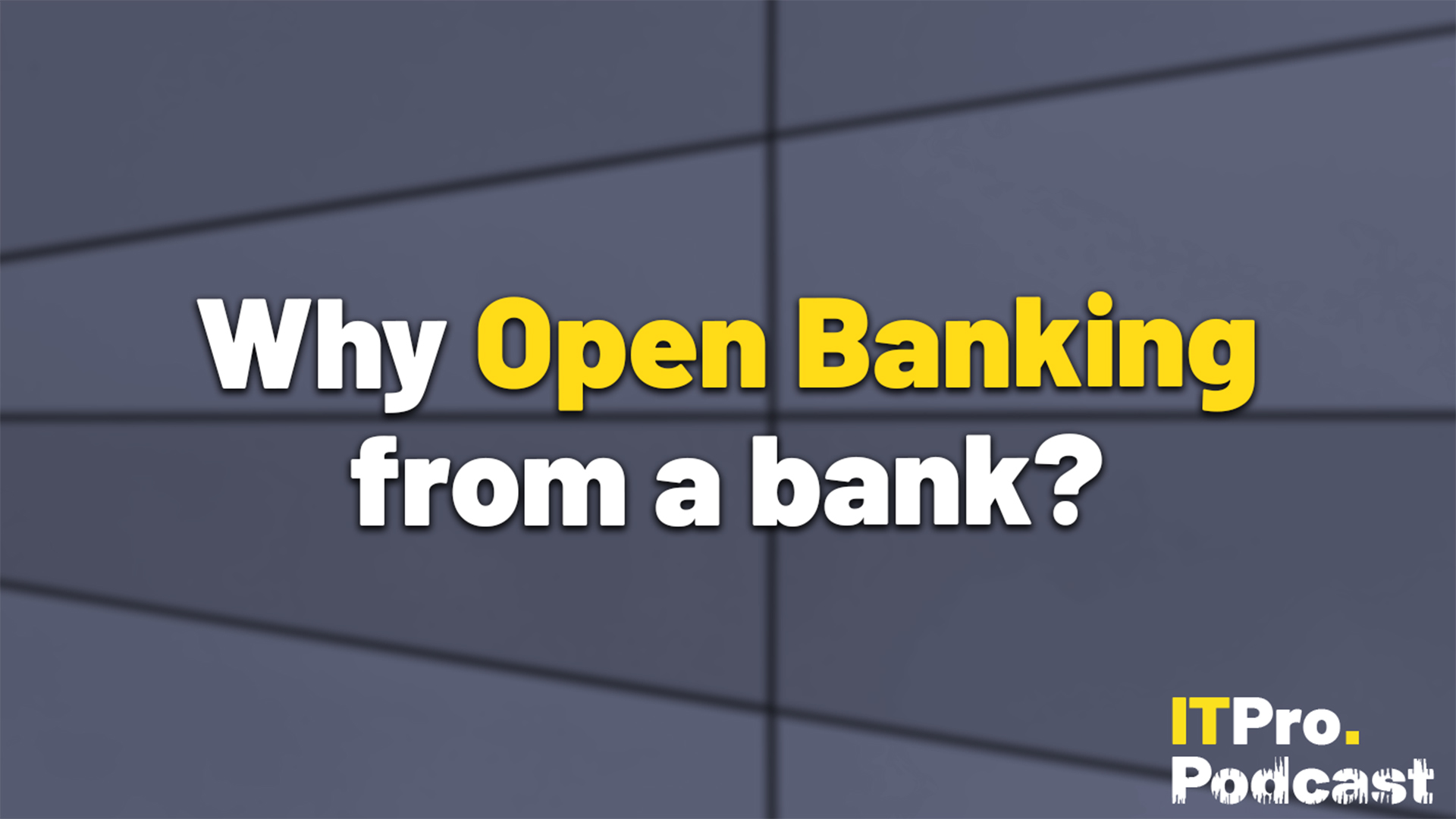Sponsored by NatWest
What are AISPs and how can they enable better online electronic transactions?
AIS technology offers instant access to bank-verified data, simplifying transactions and enhancing data security

Accuracy and security are essential for businesses processing online transactions. Account Information Service Providers (AISPs) offer a solution, allowing businesses to access verified bank data directly from customers' accounts with their consent. Through a secure, regulated framework known as Open Banking, AISPs streamline the sharing of essential data, minimizing errors and fraud while improving the overall user experience.
For businesses looking to simplify transactions and reduce costs, AISPs provide a unique opportunity. With customer data that’s accurate, secure, and instantly accessible, these providers are transforming the way companies handle customer information.
What is an AISP?
AISPs are a third-party service that connects securely with customers’ bank accounts to retrieve information such as account numbers or transaction histories, provided the customer has granted permission. Unlike services that handle payments directly, AISPs offer “read-only” access, which means they can see any data in the customer’s bank account, but can’t change it.
This limited, secure access ensures that the data retrieved is both accurate and safe, allowing businesses to gain essential insights without compromising security.
How AISPs differ from PIS and the role of Open Banking
To understand AISPs fully, it’s helpful to place them alongside two related concepts: Payment Initiation Services (PIS) and Open Banking.
Payment Initiation Services (PIS): While AIS focuses on accessing customer data, PIS is designed to initiate payments on behalf of customers. For example, during an online checkout, a PIS would allow a customer to pay directly from their bank account without needing card details. This contrasts with AIS, which provides data access rather than payment capabilities. Some providers, such as Payit™ by NatWest, offer both AIS and PIS, which can make life easier for businesses that want to use both technologies.
Open Banking: Open Banking is the regulatory framework that enables both AIS and PIS providers to operate securely. By setting standards for data sharing and requiring customer consent, Open Banking ensures that financial information can be shared safely across services. In the case of AISPs, Open Banking enables them to access bank data with customer approval, maintaining transparency and security in every transaction.
How AISPs work in practice
AISPs like Payit™* by NatWest provide businesses with real-time access to bank-verified data, which can reduce the likelihood of errors and prevent fraud. For instance, when a customer opts to share their information via Payit™, their details, such as name, account number, and sort code, are securely accessed and verified by their bank. This data is shared with the business, enabling a smoother, more accurate onboarding process and helping reduce transaction errors caused by incorrect information.
Payit™ uses end-to-end encryption to safeguard all data exchanges, ensuring that sensitive information is protected throughout the process. Furthermore, Payit™ also allows users to give explicit consent before sharing any information, which can be modified or withdrawn at any time. This consent-based approach puts the customer in control, reinforcing trust and transparency.
Benefits of AISPs for customer experience and data security
One of the core advantages of AISPs is the simplicity they bring to the customer experience. With services like Payit™, customers can grant access to their bank data quickly and securely through their existing banking app. This reduces the need for manual data entry, creating a smoother and faster experience, especially during transactions or account setups. For customers, this simplicity translates into fewer steps and faster processing, making interactions with businesses feel seamless.
AISPs also give customers more control over their data. Since sharing data is entirely consent-based, customers can choose exactly what information to share and can view or adjust their consents within their own bank’s consent hub. This transparent control over personal information not only enhances customer confidence but also builds a foundation of trust between customers and businesses.
Real-world applications: how businesses are using AISPs
AISPs provide solutions for various industries, particularly where customer information verification is crucial. Businesses that need to verify bank accounts, like Self Invested Pension Schemes (SIPPs), Individual Saving Account (ISA) and gaming companies, find AISPs especially useful. For example, mortgage providers can use AISPs to confirm that a customer's nominated account is active and belongs to them, reducing risks of third-party fraud, money laundering and omitting manual errors. Similarly, online gaming companies and other regulated industries can leverage AISPs to verify customer identities and prevent fraud more effectively.
In these scenarios, AISPs streamline verification by eliminating manual processes, reducing the risk of errors, and ensuring that customer information is authentic and up-to-date. By accessing validated data directly from the bank, businesses gain greater confidence in customer transactions, while customers experience a smoother, less intrusive process.
Payit™ by NatWest: setting a new standard for secure, efficient data sharing
Payit™ by NatWest combines robust security features with ease of use. As a trusted, regulated financial service, Payit™ is designed to deliver essential customer data safely, with maximum transparency and control for users. One of the core security features of Payit™ is end-to-end encryption, which ensures that customer data remains secure from the moment it’s accessed to the moment it reaches the business. Additionally, Payit™ leverages Strong Customer Authentication (SCA) as an extra layer of security, making sure that only the authorized customer can consent to data sharing.
For businesses, Payit™ offers a straightforward integration process, enabling them to implement AIS functionality quickly. The service provides various customer data attributes, such as account holder names and bank details, allowing companies to streamline onboarding, minimize Direct Debit errors, whether accidental or intended, and enhance overall transaction accuracy.
Future potential of AISPs and Open Banking
The use of AISPs is expected to expand as Open Banking evolves and more industries recognize the advantages of secure, customer-consented data sharing. As standards for Open Banking continue to develop, AISPs may soon have access to a broader range of customer data attributes. This expansion could open up new possibilities for personalizing customer experiences and improving the efficiency of various digital processes across industries.
As AISPs become more sophisticated, businesses will be able to innovate and create even more user-friendly experiences that are personalized, secure, and compliant with regulatory standards. AISPs like Payit™ by NatWest are setting the foundation for a future where customer data can be shared with ease and confidence.
*Payit™: Ts&Cs apply. You will need to sign up to Payit terms and conditions and you may need to hold an account with us. Your business must be based and trading in the UK with a turnover above £2M. You must be 18 years or older. Fees are based on the volume and average value of transactions.
Get the ITPro daily newsletter
Sign up today and you will receive a free copy of our Future Focus 2025 report - the leading guidance on AI, cybersecurity and other IT challenges as per 700+ senior executives
ITPro is a global business technology website providing the latest news, analysis, and business insight for IT decision-makers. Whether it's cyber security, cloud computing, IT infrastructure, or business strategy, we aim to equip leaders with the data they need to make informed IT investments.
For regular updates delivered to your inbox and social feeds, be sure to sign up to our daily newsletter and follow on us LinkedIn and Twitter.
-
 Cleo attack victim list grows as Hertz confirms customer data stolen
Cleo attack victim list grows as Hertz confirms customer data stolenNews Hertz has confirmed it suffered a data breach as a result of the Cleo zero-day vulnerability in late 2024, with the car rental giant warning that customer data was stolen.
By Ross Kelly
-
 Lateral moves in tech: Why leaders should support employee mobility
Lateral moves in tech: Why leaders should support employee mobilityIn-depth Encouraging staff to switch roles can have long-term benefits for skills in the tech sector
By Keri Allan
-
 How open banking is driving efficiency for finance teams
How open banking is driving efficiency for finance teamsOpen banking APIs make near-instant payments and real-time insights possible without sacrificing security
By ITPro
-
 Ease your data compliance headache with a modern payment system
Ease your data compliance headache with a modern payment systemRemoving the need to store bank account information for regular payments or refunds, firms can lean into open banking solutions like Payit™ by NatWest to greatly ease their compliance burden
By ITPro
-
 What is open banking?
What is open banking?Open banking empowers consumers to move money more flexibly, while giving fintech organizations the data needed to innovate in a crowded marketplace
By ITPro
-
 Why payment technology is crucial to digital transformation
Why payment technology is crucial to digital transformationOpen Banking solutions like Payit™ by NatWest can play a crucial role in modernizing businesses’ financial operations and customer experience
By ITPro
-
 Why payment technology should be a key concern for all online businesses
Why payment technology should be a key concern for all online businessesWith cybersecurity threats rising, choosing the right technology could make the difference when avoiding disaster
By ITPro
-
 How APIs are transforming payment systems across the enterprise
How APIs are transforming payment systems across the enterpriseAPIs are becoming essential to the future of financial services, with efficiency gains and other benefits available to any company that makes the leap
By ITPro
-
 The customer knows best: How to ensure you’re delivering an effective digital payments experience
The customer knows best: How to ensure you’re delivering an effective digital payments experienceSponsored Tap into shifting customer trends with account information services that will give your business a competitive edge
By ITPro
-
 Why Open Banking from a bank?
Why Open Banking from a bank?Special Edition Harnessing the best of open banking allows enterprises to track spending in near real-time
By ITPro
